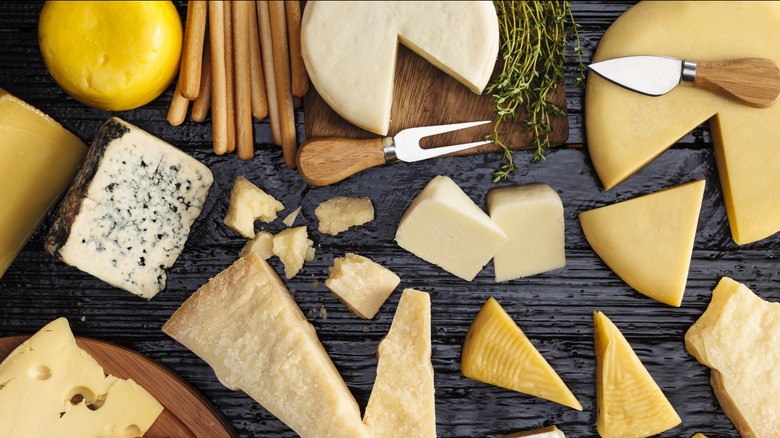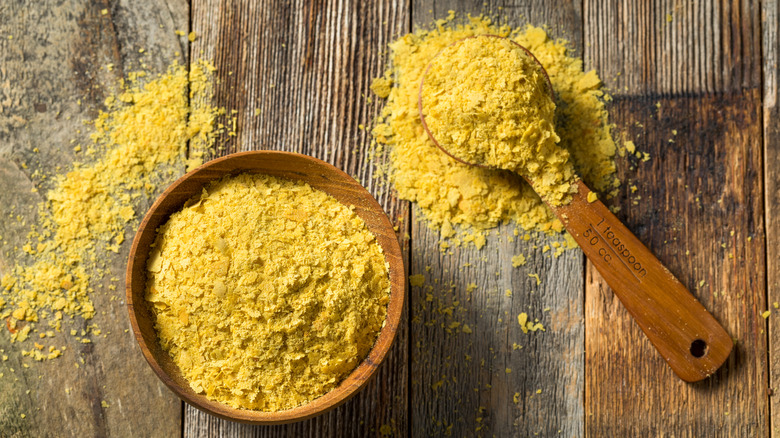Why Some Cheeses Aren't Really Vegetarian-Safe (And What To Use Instead)
In recent years there has been a growing number of people adopting different plant-based practices of eating, ranging from vegetarian, vegan or simply just trying to eat more meatless meals throughout the week. However, it may come as a shock to learn that some foods assumed to have no meat or animal by-products within them actually do — like cheese! Vegetarians will want to be weary of consuming the four cheese varieties parmesan, pecorino romano, gorgonzola and manchego. These cheeses unfortunately are not vegetarian-safe due to one specific ingredient known as rennet.
These enzymes are either derived from animal, plant or microbial species and are used to support the chemical reactions that are needed in developing certain textures and flavors within some food products. If a food product contains rennet, its not legally required for the product's ingredient list to state where exactly the enzymes come from. However, in order to produce specifically the four cheeses previously mentioned, the enzymes used have to come from the stomach lining extracted from either cows, goats, sheep or even pigs.
Fortunately, some brands nowadays have pivoted their process in cheese-making and only use plant or microbial enzymes in spite of those who follow a vegetarian diet exclusively, but still just want to enjoy a nice sprinkling (or chunk) of cheese. These brands will often noticeably market on their packaging when a cheese is vegetarian-safe.
Have no fear, cheese alternatives are here
For those who follow a vegetarian diet exclusively, but still just want to enjoy a nice sprinkling (or chunk) of cheese, some cheese brands are now only using plant or microbial enzymes . These brands will often noticeably market on their packaging that their cheese is vegetarian-safe. If you're cheese-shopping as a vegetarian and a cheese product does not disclose that its vegetarian-safe somewhere on the package or specifies within the ingredients the type of enzymes used, then it may be a good idea to instead opt for a darn good cheese alternative known as nutritional yeast!
Nutritional yeast — a.k.a "nooch" for short, is a fermentation by-product that takes on a sour, pungent, cheesy flavor and appears as millions of tiny yellow-colored, thin flakes that are sometimes ground into a powder-like consistency. It's also packed with an array of "nutritional" benefits, such as being high in both protein and B vitamins. Nutritional yeast is a great substitute in any instance parmesan cheese would be called for.
When searching for cheese alternatives that mimic the textures dairy cheeses can take on — melty, creamy, hard, crumbly etc. — non-dairy cheeses are another great option. Nowadays, non-dairy cheeses can be found in the same varieties as dairy cheeses, but some just may not always achieve that unique, umami flavor that dairy cheese and nutritional yeast have. Regardless of dietary preferences, thank goodness there's plenty of options for everyone to satisfy their cheesy desires!

